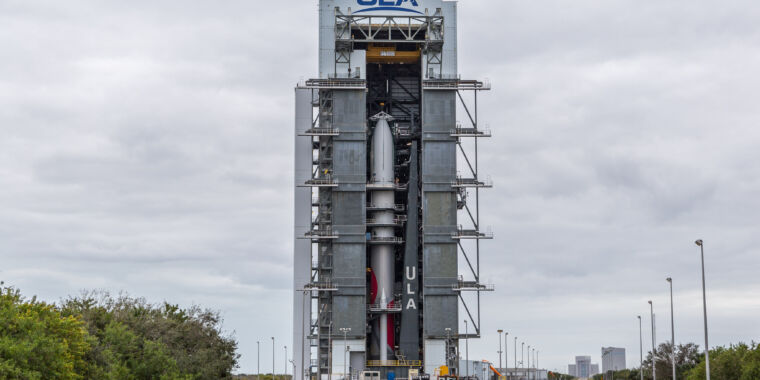- cross-posted to:
- [email protected]
- cross-posted to:
- [email protected]
“This marks an absolutely pivotal moment for the 20-year-old launch company, which has gone from the titan of the US launch industry to playing a distant second fiddle to its one-time upstart competitor SpaceX. Last year, SpaceX launched 98 rockets. United Launch Alliance, or ULA, tallied just three.”



This is the best summary I could come up with:
After years of delays, billions of dollars in federal funding, and a spectacular second-stage explosion, the large and impressive Vulcan rocket is finally ready to take flight.
United Launch Alliance’s heavy lift vehicle underwent its final review on Thursday, and the company cleared the rocket for its debut flight.
With weather looking favorable, the Vulcan rocket is on track to lift off at 2:18 am ET (7:18 UTC) on Monday from Cape Canaveral Space Force Station in Florida.
A quarter of a century ago, two of America’s largest aerospace contractors, Lockheed and Boeing, were the national leaders in providing launch services for the US military and many of NASA’s science missions.
Military officials began to worry that if Boeing stopped flying the Delta, their only pathway into space would be through a Russian engine—the RD-180 that powered Lockheed’s Atlas V.
As part of the settlement, the military agreed to accelerate the certification of the Falcon 9 rocket and open up a number of the block buy launches to competition.
The original article contains 790 words, the summary contains 169 words. Saved 79%. I’m a bot and I’m open source!
You saved 79%, but somehow so much more was lost
You make a good dementia bot, but is that what you want to be?